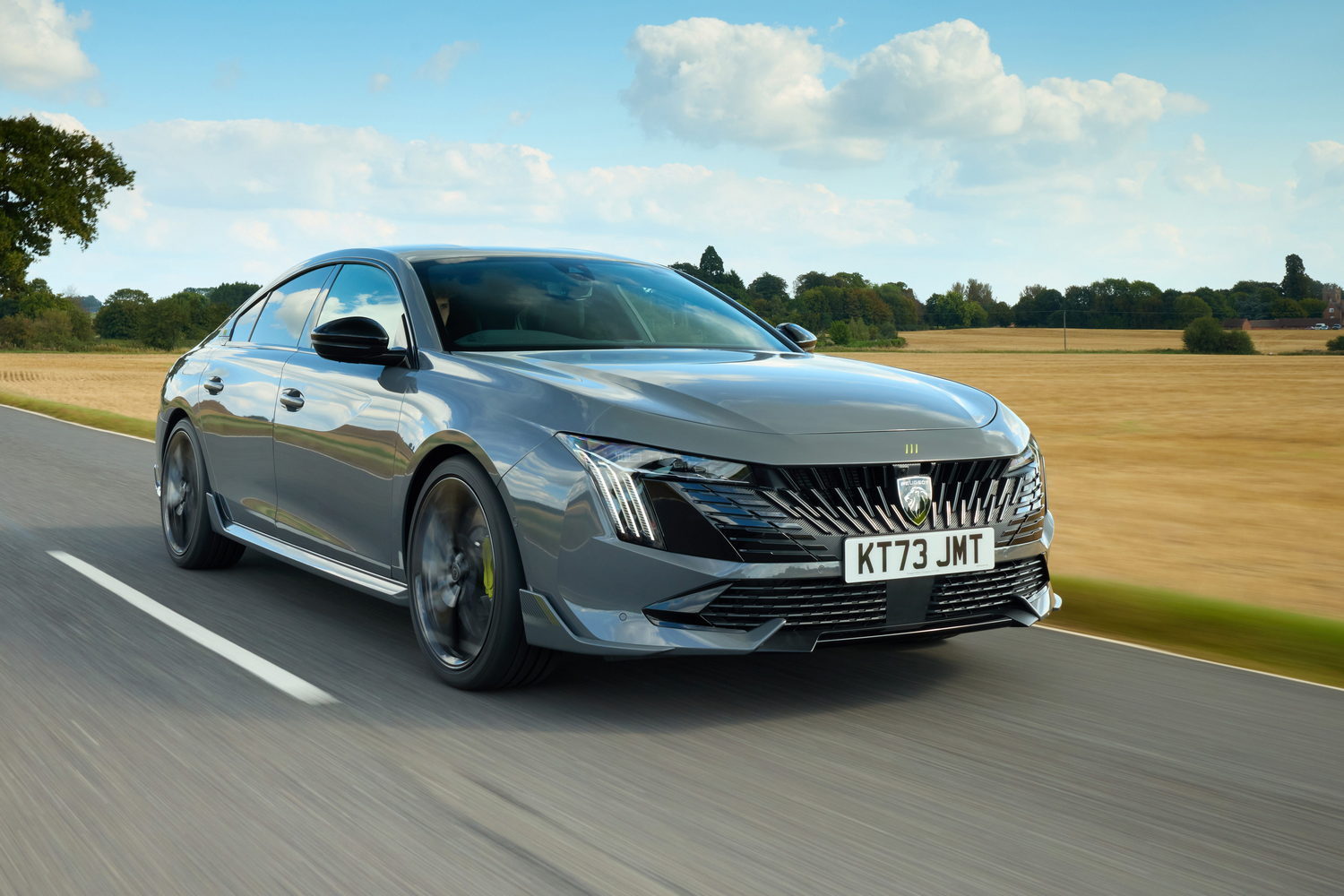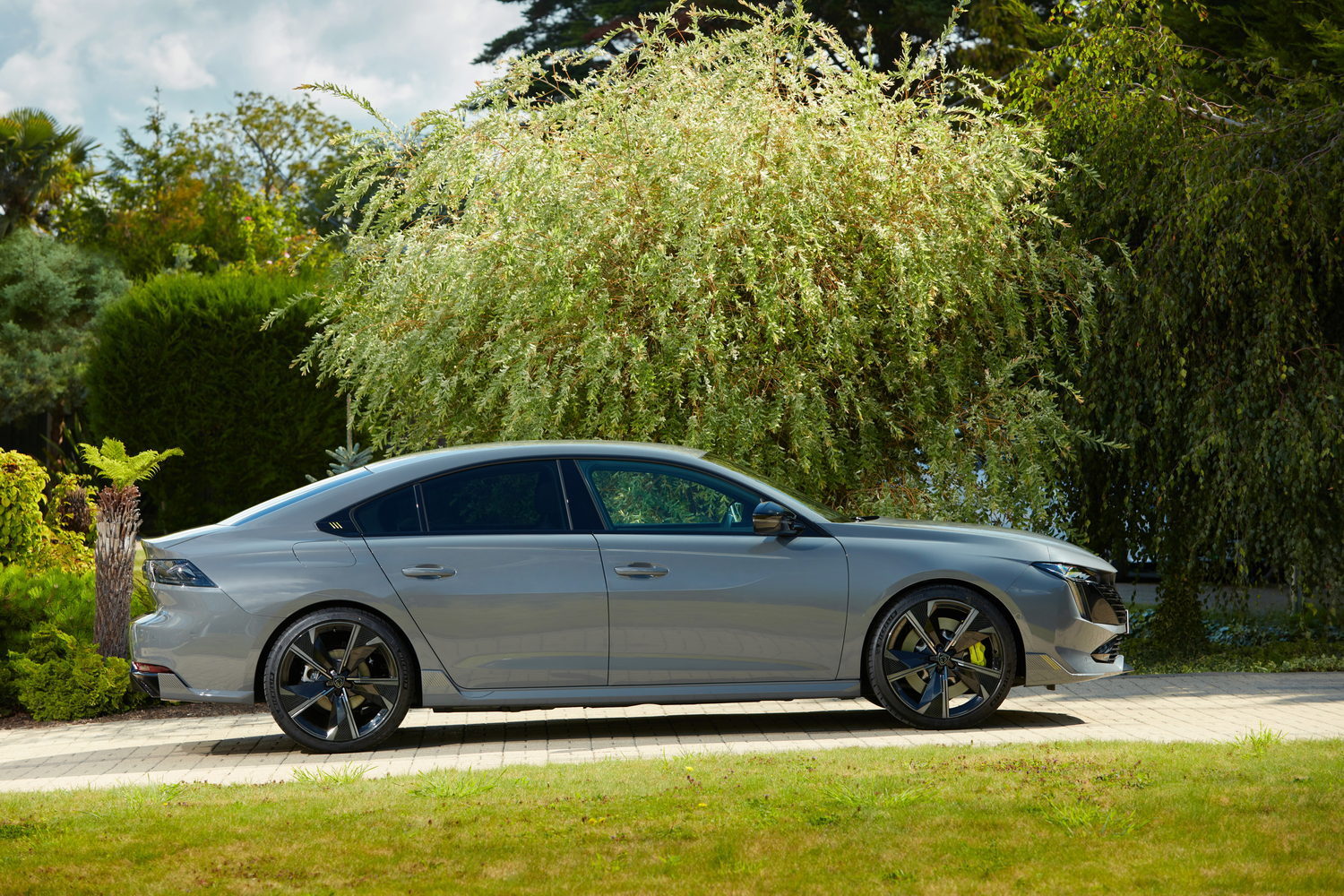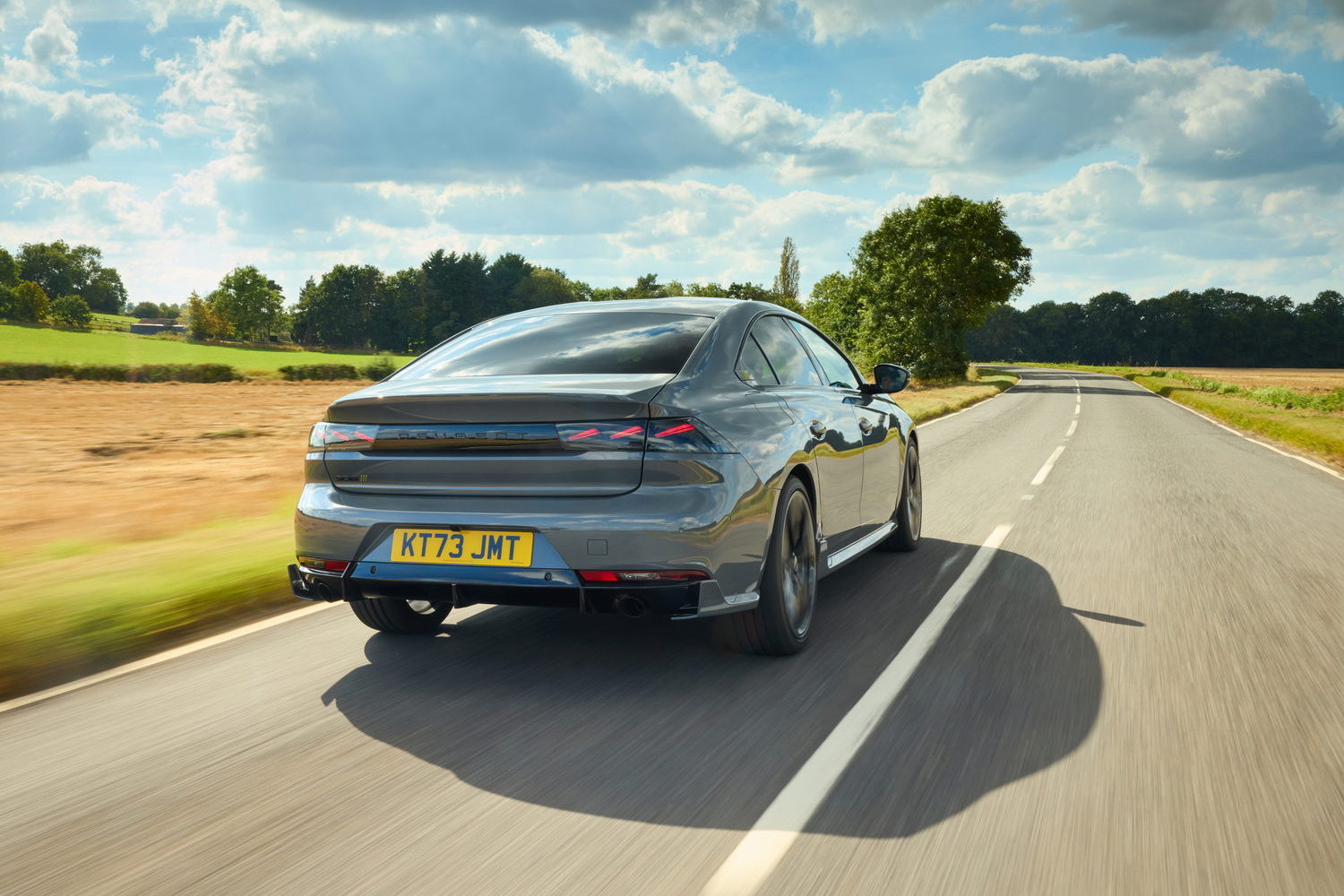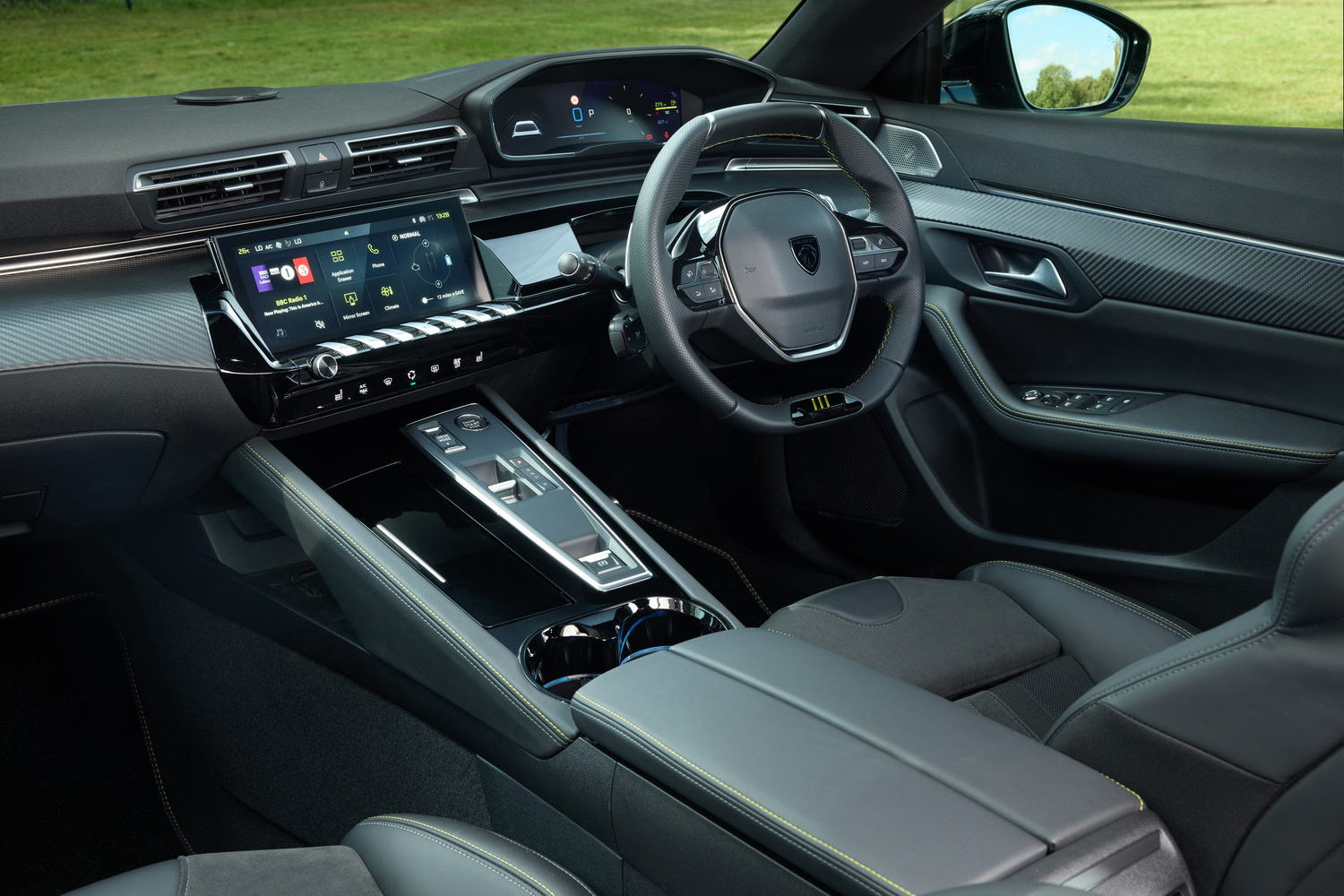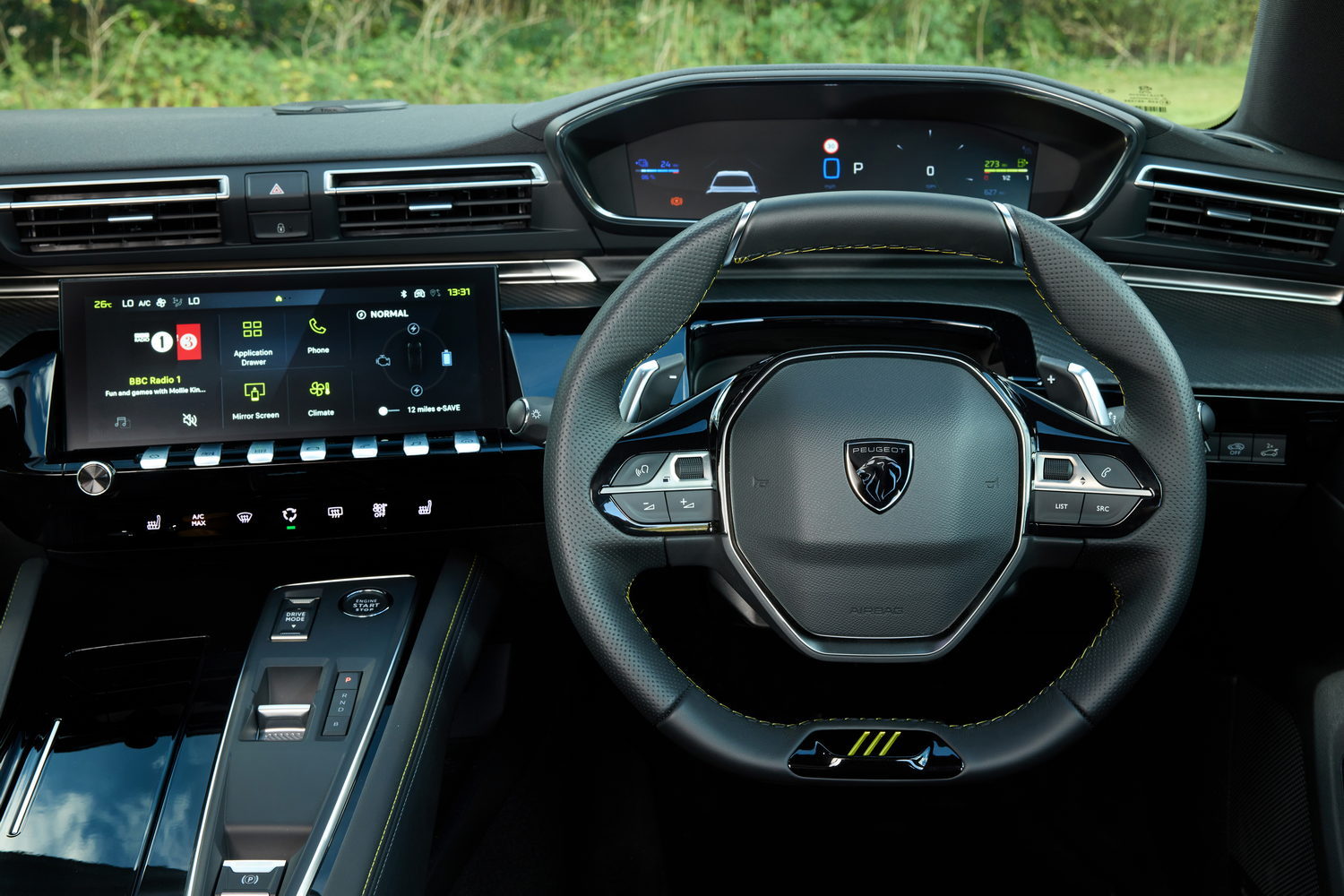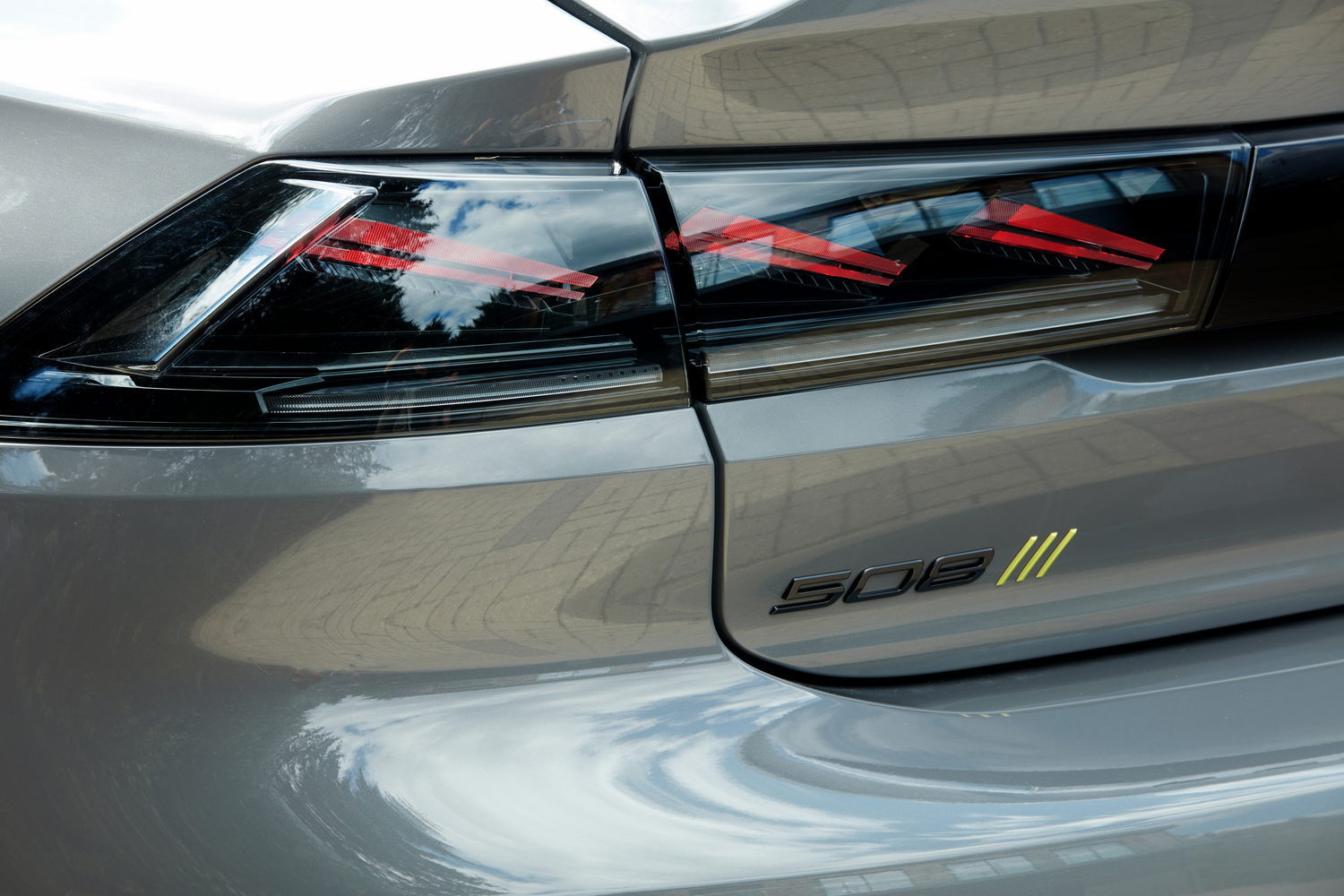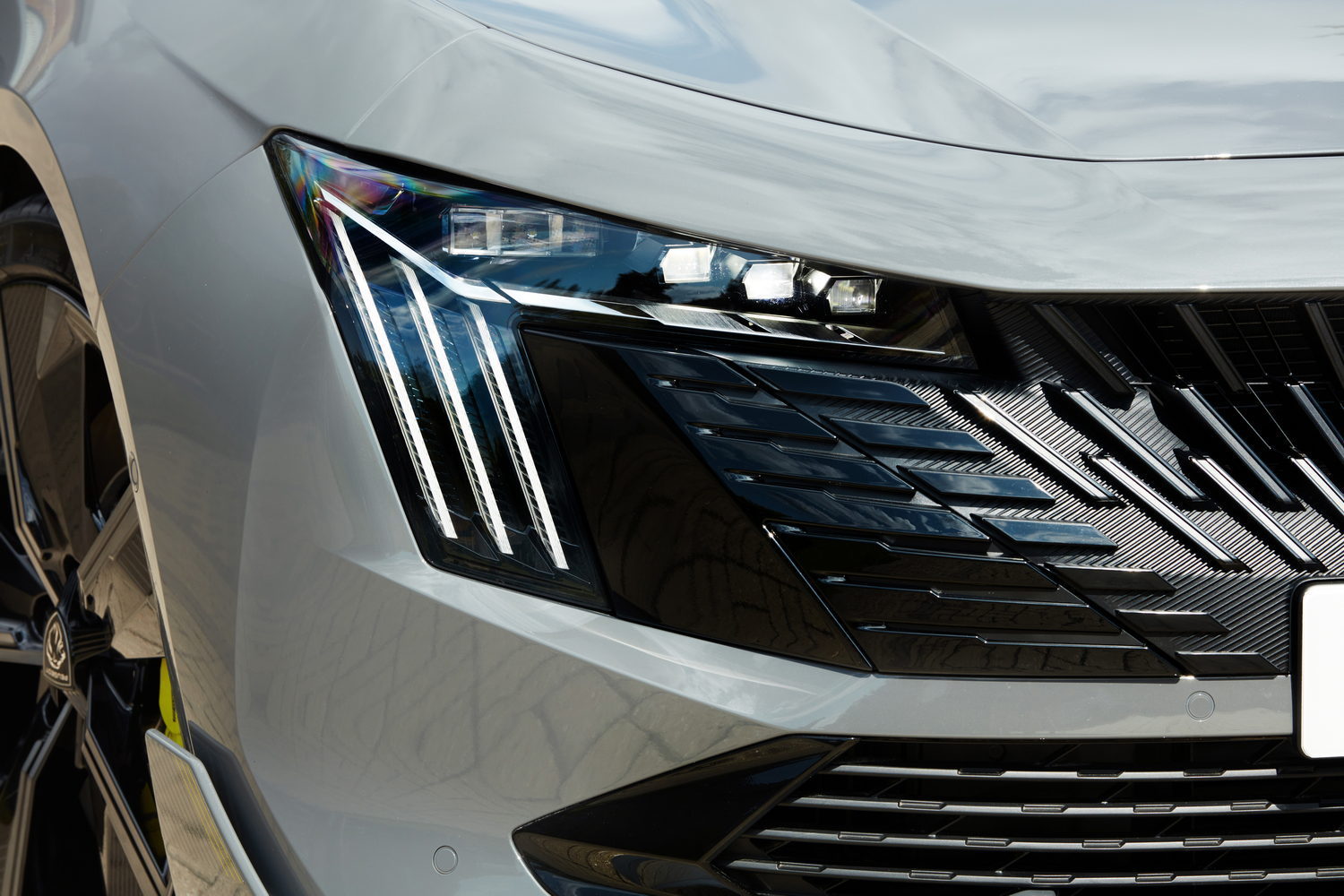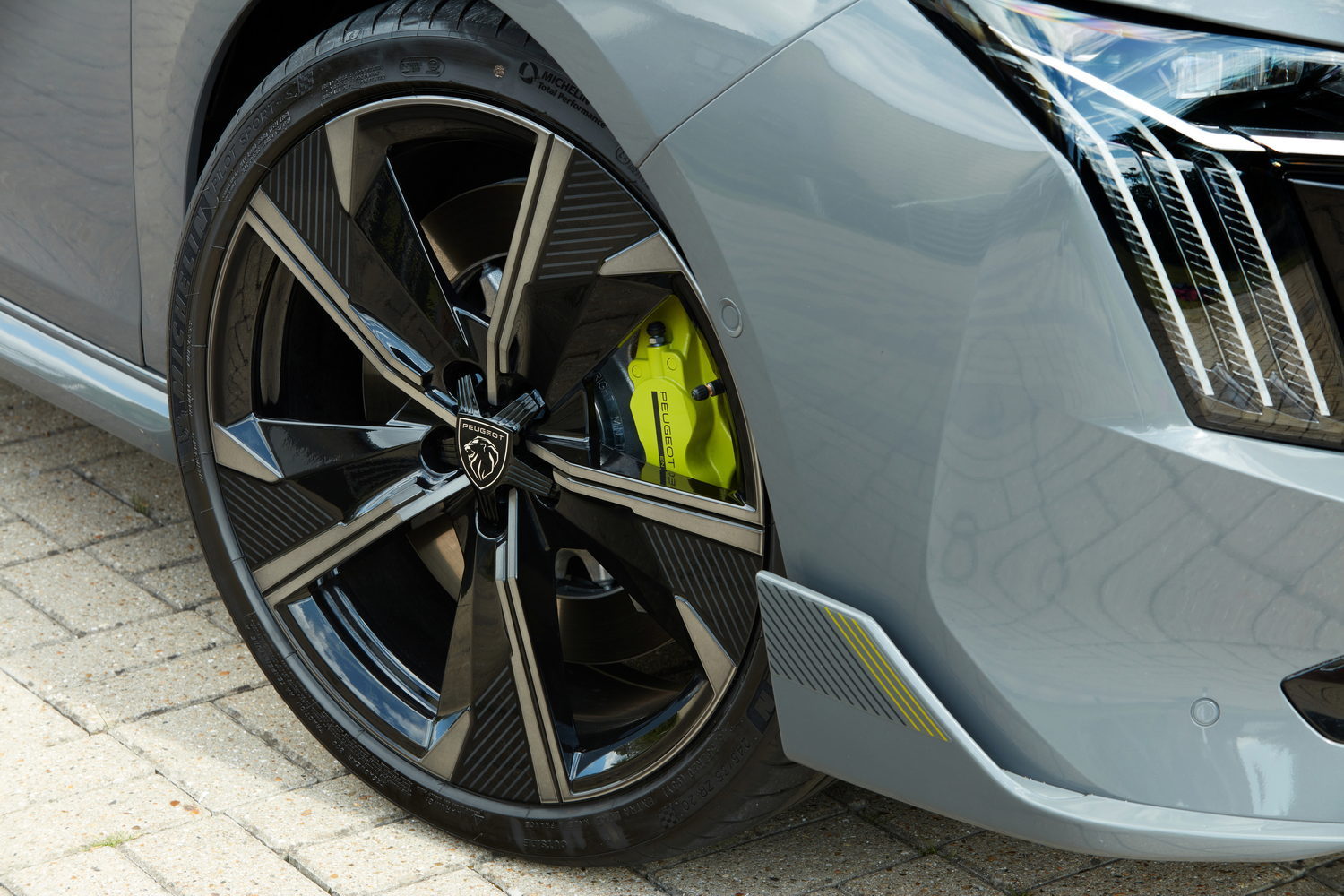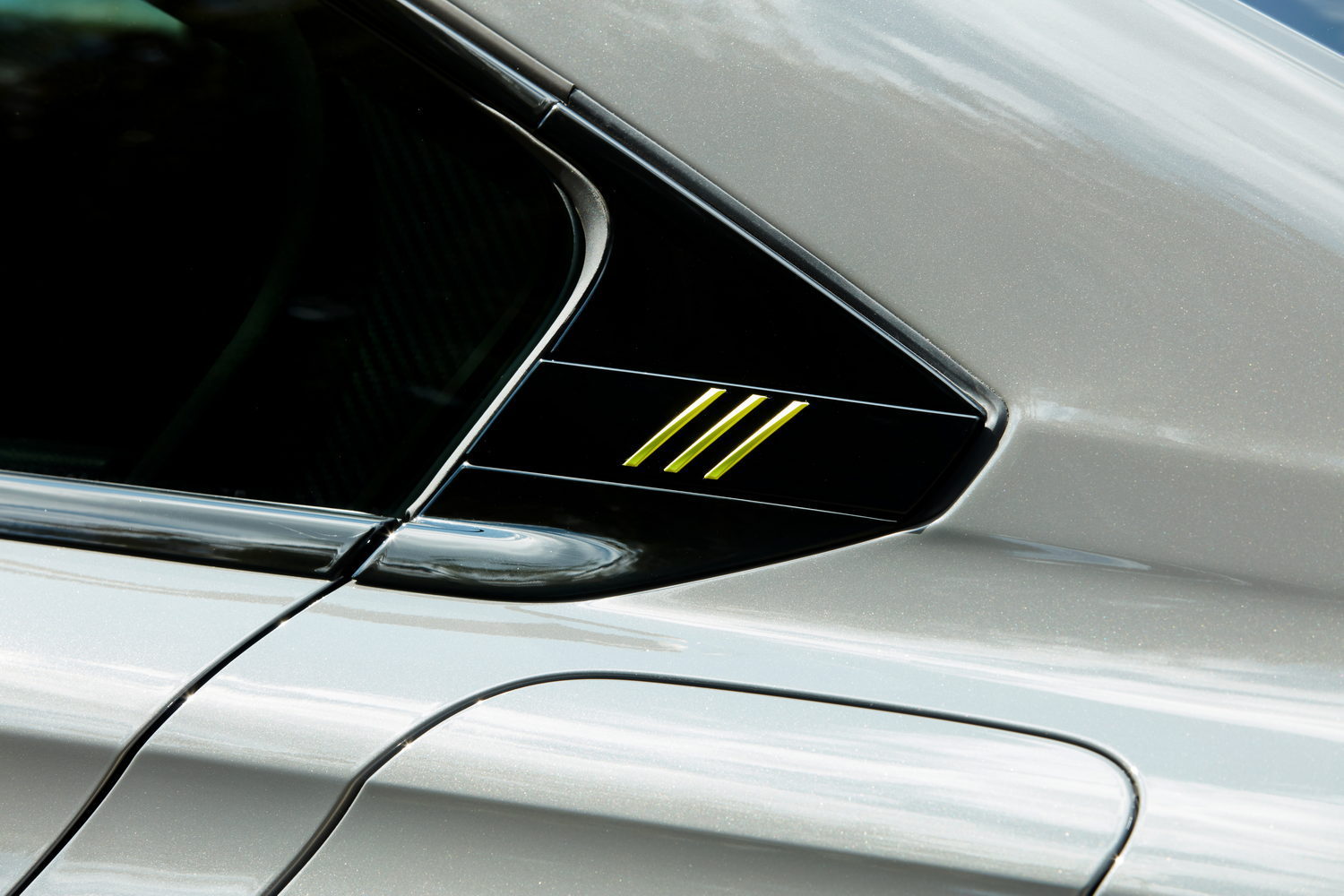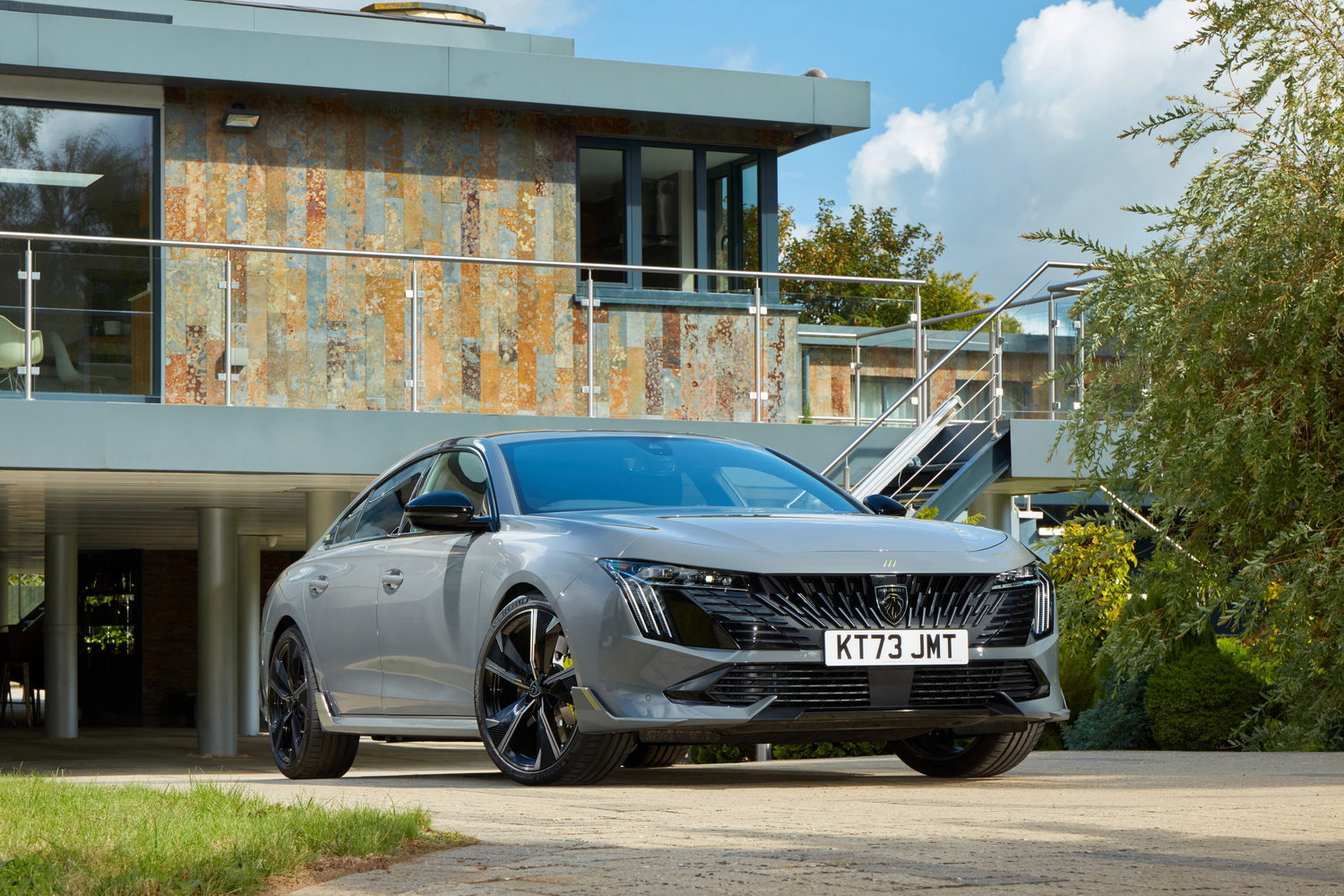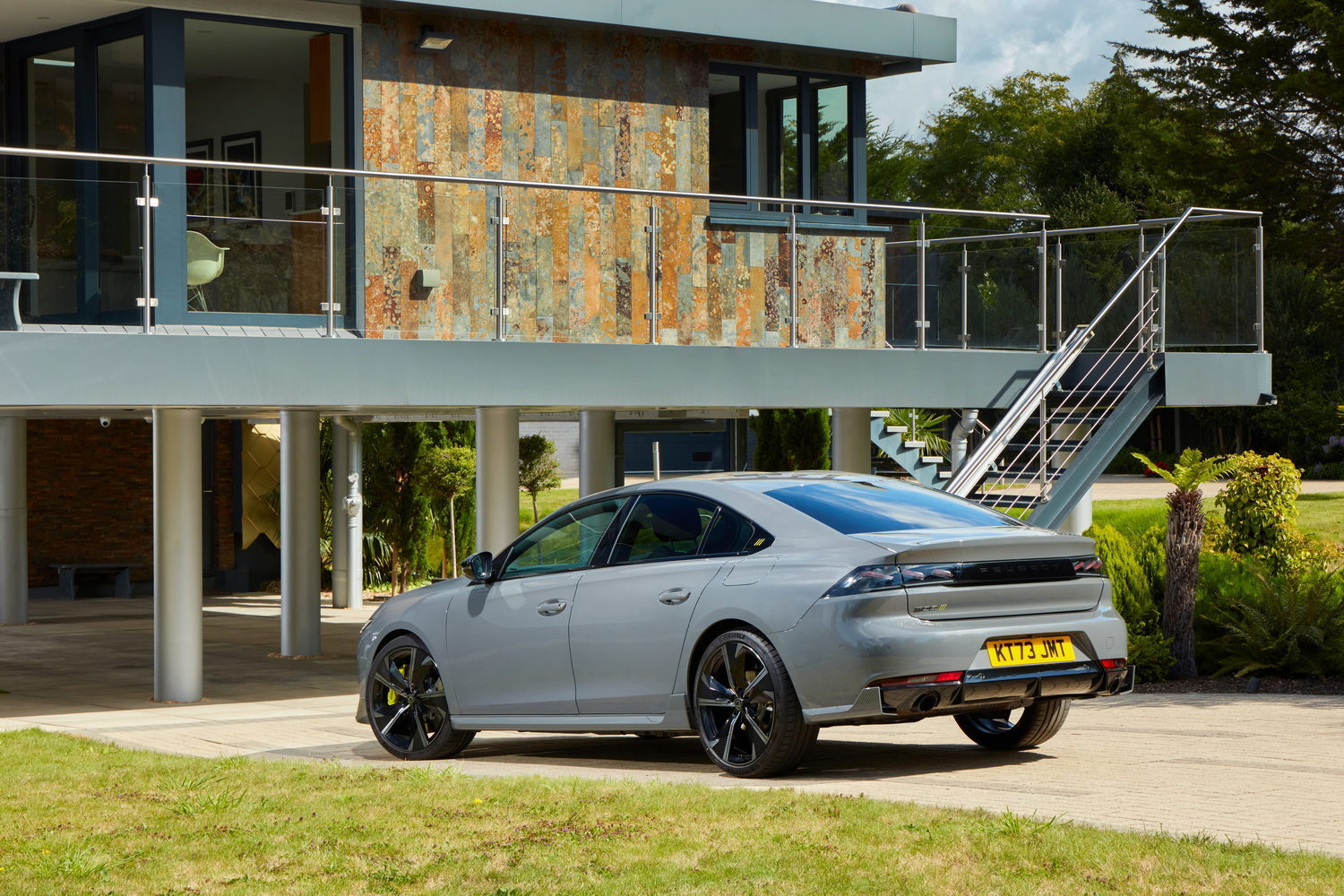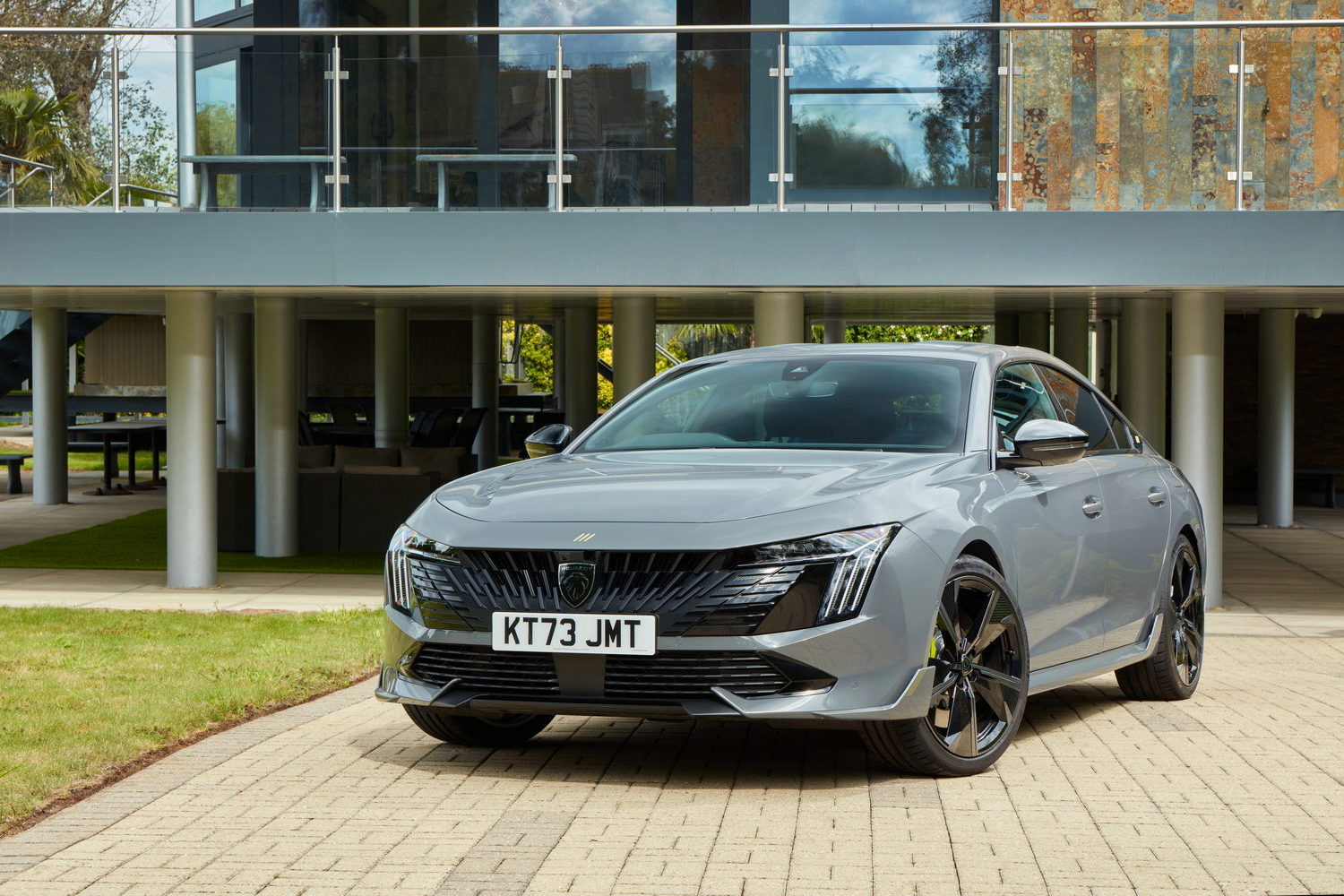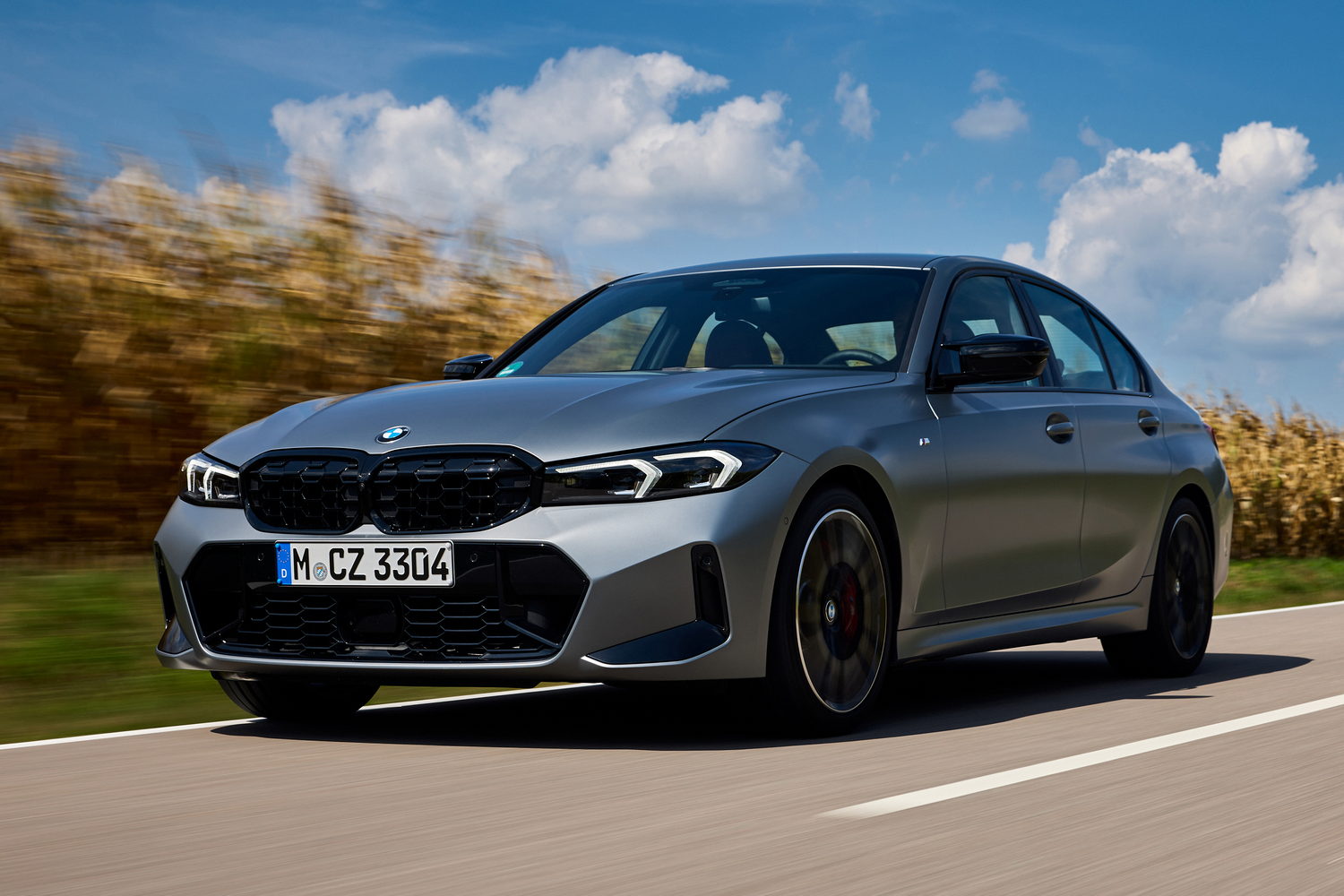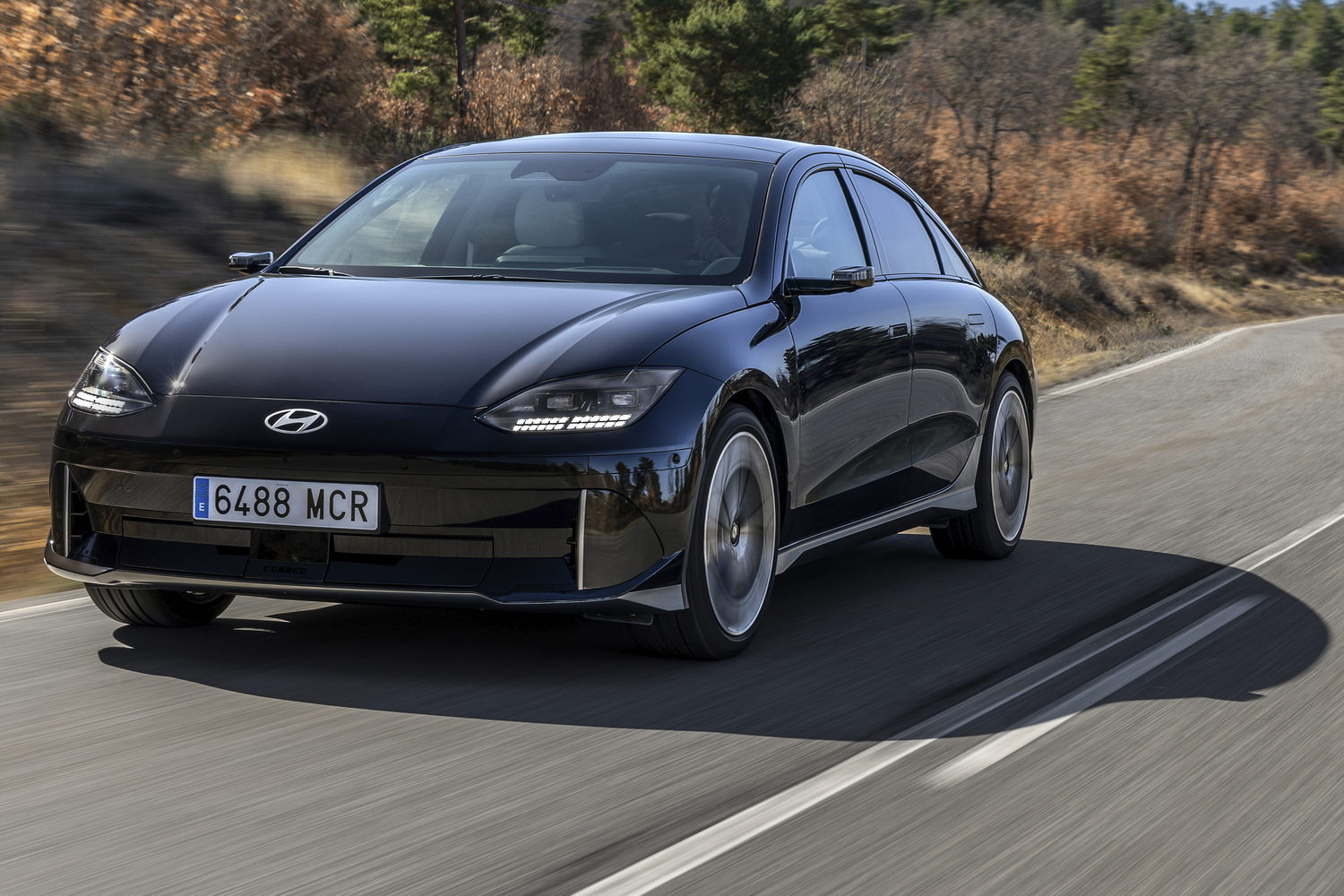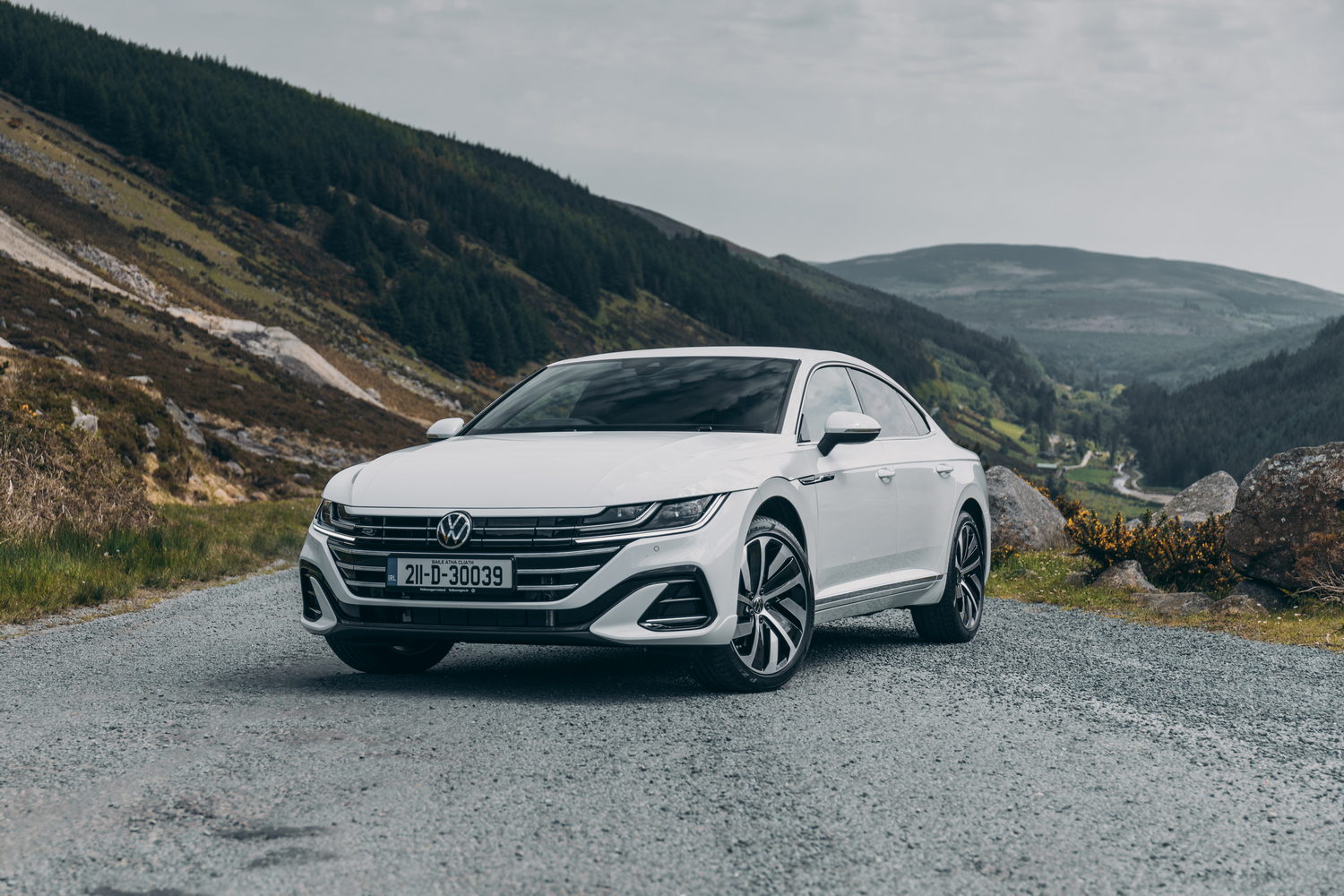Peugeot's push towards electrification includes performance models too, with the 508 Peugeot Sport Engineered - or PSE for short - receiving tweaked exterior looks, a new infotainment display and fresh graphics for the instrument cluster. No changes to its petrol-electric drivetrain, however, but when you've got 360hp and 520Nm to play with, why would you need anything extra?
In the metal
Peugeot is keen to play up the 'three-claw' look at the front of all its cars right now, hoping that with light signatures it can convince you that a lion has dragged its paw down the front of the car. It's a nice flourish, to be fair, with the daytime running lamps now informing the three-pod arrangement in the slimline headlights, which are matrix LEDs as standard, and at the back there are another three angled red taillights - claw marks, see?
Besides that, Peugeot has enlarged the front grille on the entire 508 family, the PSE receiving a gloss black finish for this that gives the car a more aggressive appearance. And then it's just a case of a few new body colours, plus different designs of alloy wheel, although the PSE is further marked out (as it has always been) by its more muscular, lower body kit, the three 'Kryptonite Green' lines of its specific logo (you can see them at the leading edge of the bonnet, for instance), and by its lower stance and wider tracks front and rear. It has presence to burn.
Inside, in general it's the same as it ever was. But the infotainment screen, presented on a 10-inch display, and the graphics in the 12-inch instrument array that forms part of the 508's distinctive i-Cockpit layout are now lifted from the newer Peugeot 308 and 408 model lines, so they're a bit sharper and more configurable. There's also now a smaller drive selector, which means the centre console has been redesigned in all 508 models, the PSE included.
Obviously, the PSE gets lots of sporty accoutrements on top of the basic Peugeot cabin architecture, like bucket seats and lime-green stitching and the like, but it always had these and its passenger compartment always felt high quality as a result. About the only complaints you can make of the 508 Fastback, PSE or not, is that rear headroom can be an impediment to very tall people, while the boot space is 487 litres when its even more handsome SW estate relation accommodates 530 litres at the back. Otherwise, the 508 PSE is an aesthetic success outside and in, albeit some will find its overtly belligerent facelift detailing overkill. We happen to like it, though.
Driving it
The PSE employs the same 1.6-litre turbocharged four-cylinder PureTech petrol engine, front 81kW (110hp) electric motor in the eight-speed EAT8 gearbox and 12.4kWh lithium-ion battery pack as both the 180 and 225 plug-in hybrid models below it in the 508 range. Where it differs is that its petrol engine is more powerful to start with, at 200hp, while it has a secondary electric motor on the rear axle rated at 83kW (113hp), therefore giving the ultimate Peugeot family fastback four-wheel drive. If you're quick at maths, you'll have totted that lot up and wondered why it isn't classified as a 423hp car, but that's all to do with how and where the various bits of its drivetrain deliver their peak outputs.
As a result, you end up with a still-more-than-healthy 360hp, with maximum system torque of 520Nm. Coupled to the four-wheel-drive system and the swift-acting automatic transmission, it's enough to propel the 1,866kg 508 PSE from 0-100km/h in just 5.2 seconds. And it's certainly a car that always feels suitably rapid, whether you're asking it for step-off (from low speeds) acceleration or roll-on pick-up (when you're already moving at a higher velocity, and you request more pace from the Peugeot by pushing the throttle). Although that is dependent on it having some charge in its battery, because when that's depleted the drivetrain starts to struggle with all the mass it's being asked to shift.
No matter; for this test drive the 508 PSE had plenty of electrical juice and delivered an enjoyable, if by no means flawless drive. If we've got criticisms, it's that the 1.6-litre engine - which has served so many Peugeots and, in the wider Stellantis group, other brands' plug-in hybrids for so long - never sounds particularly inviting, and can even become coarse and gruff at higher revs. Then there are the paddle shifts. Fixed to the steering column, only the silvery bit actually moves. If you want to see and feel how paddle shifts should be done properly on a car in this class, try out any Alfa Romeo Giulia you like.
And the ride quality on the variable dampers trying to suspend colossal 20-inch alloys with 380mm brake discs behind them never settles down to something truly cosseting - it's always just a tad too far towards the firmer end of the spectrum, which is fine if you're 'pressing on' but can be moderately tiresome if you're not.
Other than that, though, the 508 PSE grips and goes well. It's not the most playful chassis in the world, yet there's fun to be had through a series of challenging bends, mainly because it has excellent steering controlled by that weird tiny, octagonal 'wheel'. Link it all together and while the PSE is perhaps not the finest-ever driver's car that Peugeot has created, it's still pretty talented as electrified vehicles go.
And although the ride never quite attains the sort of pillowy levels you might want from a car of this class and size, neither is the Peugeot ever outright uncomfortable. It's also subdued within, with little of the tyres' noise or wind buffeting making their way into the cabin, while the part-electric running will be a near-silent boon in cities and other urban areas. On summary, the 508 PSE is a very strong all-rounder when it comes to dynamics.
What you get for your money
Perhaps the biggest drawback to the Peugeot 508 PSE is not the slightly rougher edges of its mechanical make-up, but the price of it. With the revised 508 range starting at €45,495 and the cheapest plug-in hybrid - the 180 Fastback - commanding €49,995, when you see the PSE's entry price written down in black and white, it's almost hard not to gasp: €71,495. That's a considerably chunky €17,705 more than the next-most-expensive Fastback down the tree, as well, which is the 225hp plug-in hybrid in GT specification, which would probably give you most of the performance you need in day-to-day driving, only with significantly lower running costs than the PSE.
You've therefore got to really want either the bragging rights of the PSE's performance, or its four-wheel-drive capabilities, or both, to justify the expense. At least, as you'd expect of a car ambitiously pushing into the premium sector, the equipment list is generous. To the already-bountiful specifications of the base Allure and mid-grade GT 508s, the PSE adds such luxuries as Night Vision, a 15-watt wireless smartphone charger, three-mode adaptive suspension, a premium Focal sound system, 20-inch wheels, Nappa leather and Alcantara upholstery, and a perforated grain leather steering wheel.
It also gains 7.4kW AC charging as standard, which reduces its home-charging time from three hours 25 minutes to one hour 40 minutes. And it'll go 55km on electric power alone officially, potentially using as little as 1.8 litres/100km if you charge it regularly, so it won't cost as much to run as some of its high-performance rivals which have similar power, albeit delivered from more traditional big-capacity petrol engines.
Summary
The Peugeot 508 is a great-looking car with a top-notch interior to begin with, so adding the technically intriguing drivetrain of a plug-in hybrid to the mix and then giving the whole concoction a performance flavour with the PSE touches makes it a deeply desirable proposition. How fondly you think of it will all depend on what you think of the merits of using plug-in-hybrid power for a fast car in the first place, and whether you can overlook its considerable €71,000-plus asking price. But, with these midlife visual and technological updates, Peugeot has added an extra layer of polish to a car we think is technically very impressive.

